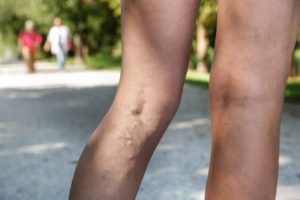
Unfortunately, many of us don’t know how to properly take care of our veins and put them at risk. To help, we compiled a list of do’s and don’ts when it comes to vein health.
Do’s and Don’ts of Vein Health
DON’T extend exposure to heat: Prolonged periods in the heat can lead to vein swelling and blood pooling which can increase the risk of blood clots.
DO hydrate: Being hydrated allows the blood to become thinner, making it easier to pass through the veins and flow more effortlessly. Thick blood is a sign of insufficient hydration along with a higher risk of blood pooling and clotting.
DON’T consume sugary beverages: Sugary beverages increases LDL cholesterol, which can line your veins and cause them to become thicker, stiffer, and narrow, which can negatively impact blood flow.
DO wear compression stockings or elevate your legs: If you are at a higher risk of venous insufficiency, then it is a good idea to use compression stockings or to elevate your legs to prevent complications. Compression stockings work by compressing the muscles in the legs to promote the upward motion of blood so it does not pool in the legs. Blood pooling can occur as a result of prolonged standing, pregnancy, genetics, or other medical conditions. Taking moments throughout the day to elevate your legs is also wise to promote proper circulation.
DON’T lift heavy weights: Lifting heavy weights can put too much stress on your legs and the veins in your legs. Instead, do a mix of cardio and lighter weights to promote blood circulation.
DO walk: Walking is a low impact activity that allows for healthy blood circulation without too much stress on your veins. Furthermore, it can have a positive impact on your overall health.
DON’T smoke: Smoking negatively impacts your cardiovascular health by inserting chemicals into the body, which deoxygenates blood and greatly reduces blood flow.
DO eat healthily: A healthy diet can go a long way in supporting vein and overall health because you fuel your body with the nutrients it needs to stay healthy and promote healthy blood.
DON’T sit or stand all day: Prolonged sitting or standing can be detrimental to your vein health as both limit blood circulation. Take moments to move around as often as you can to prevent blood pooling.
DO seek treatment: Many venous conditions are treatable, so if you’re experiencing vein issues, discuss them with your doctor to receive treatment before complications arise.
Also read:
- Sudden bulging veins in hands: Causes, symptoms, and treatment
- Blown vein: Causes, symptoms, treatment
- 19 foods that increase blood flow